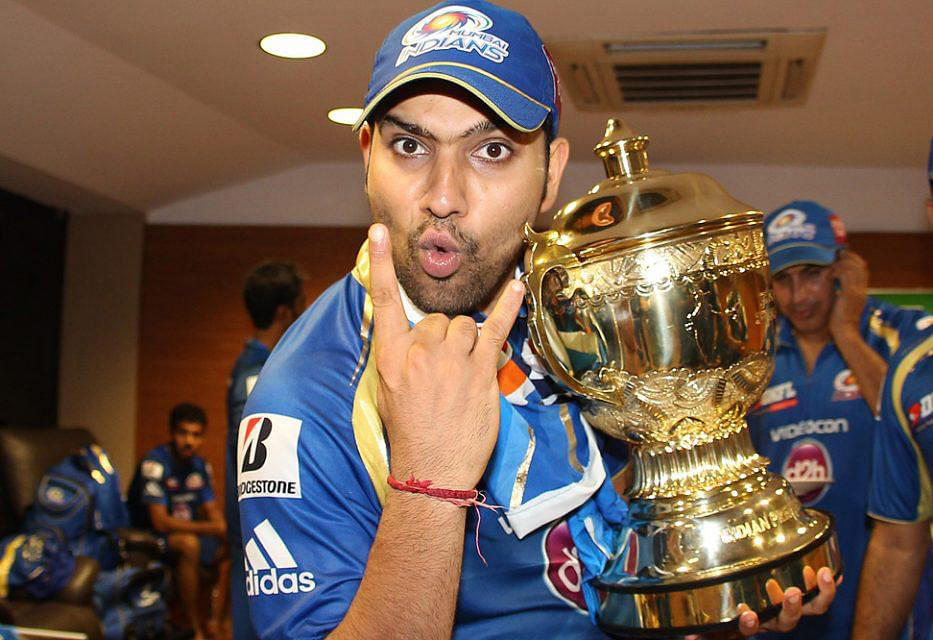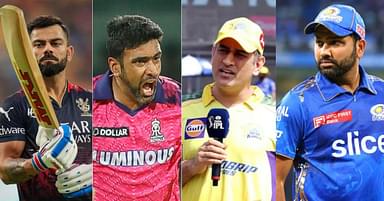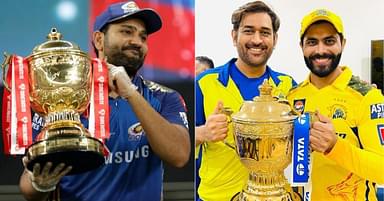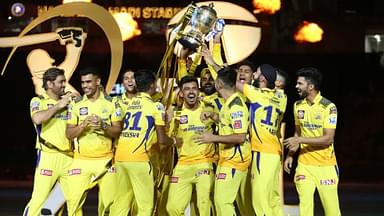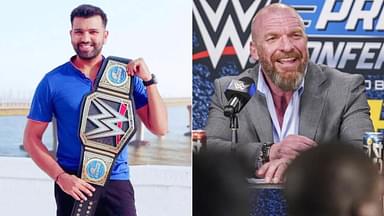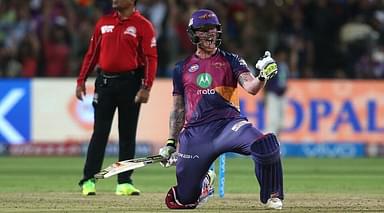The season 10 of the Indian Premier League is coming to an end and we have had a few months of riveting action with immense entertainment. The IPL 10 final is a couple of days away and we now look at some of the greatest finals of the IPL over the years. So here are five of the best IPL finals in history.
5) SUNRISERS HYDERABAD vs ROYAL CHALLENGERS BANGALORE (2016)

Sunrisers Hyderabad showed their intent early by opting to bat against Royal Challengers Bangalore at a venue where tall scores have been chased down nonchalantly. David Warner, their captain, top-scored with a 38-ball 69, before Ben Cutting finished the innings with an unbeaten 15-ball 39 to help them post 208 for 7. Eventually, however, it was Sunrisers’ bowling attack, the best in the tournament, that delivered their maiden IPL title with an eight-run win at the M Chinnaswamy Stadium.
Royal Challengers, however, had their batting guns. With only one fifty in nine innings leading up to the final, there were question marks over Gayle, but he was unperturbed, launching Barinder Sran for three sixes in his first two overs and lifting Royal Challengers to 42 for 0 after four.
Warner brought back Mustafizur in the 10th over, and Kohli finally got going, squeezing him past cover for four and then lofting him over the long-off boundary. With the asking rate under control, Gayle tactfully rotated the strike. Royal Challengers were cruising.
ALSO READ : The worst umpiring blunders in IPL 10
Then came the turbulence: Gayle, Kohli and de Villiers fell in the space of 20 balls, and Royal Challengers slipped to 148 for 3. They needed 61 off 37 and they needed Watson to make up for his lapses with the ball. He swatted Henriques for six over long-on, but his dismissal in the 17th over, immediately following that of KL Rahul, left Royal Challengers with too much to do in too little time.
The platform for Sunrisers’ win was set by Warner. With Kohli employing a deep point to block his cut, the Sunrisers captain brought out the straight lofted hits. When the ball was not in his half, he was happy to back away to open up the off side or carve the ball behind square. The result was eight fours and three sixes for his ninth fifty of the tournament, which he ended as its second-highest run-getter.
Yuvraj Singh, who came in at 97 for 2 in the 10th over, sustained Sunrisers’ momentum. He got going with a punchy off-drive off Watson, and then flicked Chris Jordan for six behind square. The swagger and the the free-flowing bat swing were back. Yuvraj’s dismissal came in the 17th over, soon after those of Warner and Deepak Hooda. At 148 for 5, it looked like Royal Challengers could reel back Sunrisers in the slog.
Cutting ensured that wouldn’t happen. He stayed deep in the crease, shortening the length of attempted yorkers, and clobbered the low full-tosses and half-volleys. Batting on 16 off 10 at the start of the final over, he hit Watson for 4, 6, 6 and 1 before coming back on strike for the final ball of the over, which he launched high over long-off. That over went for 24 and proved match-turning: playing their third final, Royal Challengers lost for the third time.
4) MUMBAI INDIANS vs CHENNAI SUPER KINGS (2013)

Kept alive by Kieron Pollard’s fighting 60 off 32, the Mumbai Indians bowlers attacked their way to a first IPL title. Mumbai were struggling at 52 for 4 in the 10th over, but Pollard batted through the innings to take them to 148 even as wickets kept falling as the other end. Lasith Malinga and Mitchell Johnson then were too good for the Chennai Super Kings batsmen, yorking and bouncing them out.
Super Kings’ two big Indian batsmen fell to bouncers, their best batsman was done in by a perfect Malinga yorker, and the rest fell under the weight of the pressure and their own conservatism. MS Dhoni came in to bat at No. 7, and Albie Morkel at 8. Twenty20 doesn’t always favour aggressive sides, in that wickets don’t mean as much as they should, but in this match it did.
The first ball Pollard faced he defended away for four. That was sweetly played. He just pushed at a shortish delivery, but the ball scurried along between the bowler and mid-off. He lost Ambati Rayudu after a 48-run fifth-wicket stand, but kept bringing up fours and sixes without taking risks. His countryman, Dwayne Bravo, though, threatened to ruin his plans. This time, though, they would need something special. Malinga, asked to bowl the first over, delivered nothing less than special. A swinging yorker first squeezed under Michael Hussey’s bat. Out came Suresh Raina. In came a backward short leg. Out came an accurate bouncer. Raina fended at it while looking towards third man. Backward short leg took the catch.
Super Kings now sent crisis man S Badrinath ahead of the bigger hitters. If consolidation was his brief, Badrinath exceeded it by driving at a wide length ball from Mitchell Johnson and edging it through. Bravo and Ravindra Jadeja didn’t take too long, and Dhoni had to finally come out at 36 for 5 in the seventh over. However, he ran out of batsmen soon with M Vijay falling to a Johnson bouncer and Morkel to a full Pragyan Ojha delivery, and actually had to begin farming the strike and refuse singles with six overs still to go.
Most of Dhoni’s 63 off 45 came after the match had been lost, and only gave Mumbai an extended time on the field to celebrate the title even when the match was on.
3) RAJASTHAN ROYALS vs CHENNAI SUPER KINGS (2008)

Years later, this match might be seen as the ultimate heist pulled off by Rajasthan Royals, yet anyone who had watched the Royals under Shane Warne steamroll richer teams, knew they were the favourites even against the class of the Chennai Super Kings. It was a battle between two cricketing masterminds in Dhoni and Warne. The match which was played in Mumbai, saw CSK choosing to bat first, and they were making steady progress.
Their innings though was given a boost by Suresh Raina, who grabbed the opportunity on the big day. He made 43 off just 30 balls and was supported by cameos from Parthiv Patel and MS Dhoni. The latter gave the final push to the score with a 17-ball 29 to take the total to 163, which was a good score, considering it was the first IPL.
The T20 world didn’t have half the strategies, shots or bravado that it now possesses. Neither Sohail Tanvir nor Shane Watson did a lot of damage with the ball, but it was Yusuf Pathan who shone and did the star turn for the Royals, with his figures of 3-22 in four overs the highlight.
ALSO READ : Watch India v Pakistan promo, Champions Trophy
During the chase, Rajasthan didn’t have the best of starts and slumped to 42 for three after seven overs. Once again, it was Yusuf Pathan who came to the rescue, adding 65 runs for the fourth wicket with Shane Watson and then another 32 with Mohammad Kaif.
Asnodkar and Watson played cameos that took RR close but not over the line. Eventually, they needed 25 runs from the last three overs.
Although they had to overcome the dismissals of both Ravindra Jadeja and Pathan, the Royals held off the Chennai bowlers, with Tanvir and skipper Shane Warne taking them to victory off the last ball to win the inaugural IPL in a thriller of a match. Pathan scored 56 off 39 balls and was the only half-centurion on either side in the final.
2) KOLKATA KNIGHT RIDERS vs CHENNAI SUPER KINGS (2012)

It was no mystery that KKR owner Shahrukh Khan wouldn’t give up on his dream of winning the IPL and in 2012, he did put together a team that was the most balanced in the tournament. The Knight Riders under Gautam Gambhir knew how to fight and had a penchant for finding unlikely heroes.
In one of the most memorable IPL finals, Chennai batted first and posted a colossal 190 in 20 overs, playing on their home turf. Michael Hussey scored a half-century, but it was Suresh Raina’s breath-taking 73 off just 38 balls that put KKR in the back seat. Their bowlers had no effect at all, and Rajat Bhatia was the only one to go under eight runs per over.
Kolkata didn’t start well and lost their skipper in the very first over. But Manvinder Bisla proved to be their unlikely hero of the day as he scored 89 off just 48 balls with eight fours and five sixes.
Jacques Kallis, who played way quicker than his career T20 strike-rate, scored 69 off 49 balls, and added 136 for the second wicket in just 85 balls, with Bisla. The swashbuckling innings from Bisla then came to an end, with KKR needing 52 off 32 balls at that stage.
The match swung again in CSK’s favour as the away side lost Laxmi Ratan Shukla and Yusuf Pathan quickly. Kallis, calm until then, was dismissed by Hilfenhaus, with Dhoni’s CSK now on the brink of victory.
KKR still needed 16 from just seven balls and it looked unlikely that they would be able to win. However, Hilfenhaus overstepped on the last delivery of the over, to add insult to injury, Shakib Al Hasan was caught off the ball. The Gambhir-led side managed to run two and the free hit went for a four, leaving them with just nine to score in the final over.
The match was finished off by Manoj Tiwary, who slammed two fours off Dwayne Bravo’s bowling, to ensure that the Knight Riders won their maiden IPL title.
1) KOLKATA KNIGHT RIDERS VS KINGS XI PUNJAB (2014)

KKR had been there, done that. Kings XI Punjab didn’t know how to win and their inexperience could have worked against them. But they had an amazing IPL 7, as they went top of the table by beating big teams like CSK consistently. Their cricket was aggressive and entertaining.
Batting first in the final though, they were reduced to 30 for two, as Sehwag and skipper Bailey fell early. However, Manan Vohra and Wriddhiman Saha added 129 for the third wicket in just 12 overs. While Vohra scored 67 at a strike-rate of 129, Saha played a blinder, scoring 115 off just 55 deliveries at a strike-rate of 209 on a good batting track at the Chinnaswamy.
Saha was unbeaten as KXIP scored 199 in their 20 overs, almost enough for an IPL Final. But, KKR knew how to chase, and they had shown the same earlier in 2012, against Chennai, on the latter’s home turf.
ALSO READ : Manish Pandey is ruled out of the Champions Trophy, replacement announced
This time, their hero was Manish Pandey, who arrived in the first over after their best player of the tournament, Robin Uthappa, departed early. Pandey added 53 with Gambhir and another 71 with Yusuf Pathan who played a wonderful cameo of 36 from 22 balls.
There was a wobble towards the end as Kolkata lost both Shakib Al Hasan and Ryan ten Doeschate very quickly. When Pandey fell, they needed just 21 runs off 18 balls though and the match got even more thrilling when they lost their seventh wicket, Suryakumar Yadav with 13 needed off 10 balls.
However, Piyush Chawla’s 5-ball 13 ensured that they reached 200 with three balls to spare, thus ending Punjab’s dream and making the Knight Riders the second team after CSK to win the IPL twice.

